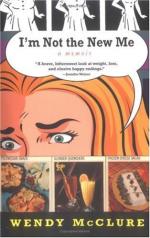“I was sayin’ the very same, Mr. Buchanan,” the skipper interrupted.
“That’s more metaphysical than I can follow,” said Miss Frazier, laughing.
“Why so? Ye’re good Scotch, an’—I knew your mother’s father; he was fra’ Dumfries—ye’ve a vested right in metapheesics, Miss Frazier, just as ye have in the ‘Dimbula,’” the engineer said.
“Eh, well, we must go down to the deep watters, an’ earn Miss Frazier her deevidends. Will you not come to my cabin for tea?” said the skipper. “We’ll be in dock the night, and when you’re goin’ back to Glasgie ye can think of us loadin’ her down an’ drivin’ her forth—all for your sake.”
In the next four days they stowed nearly four thousand tons dead weight into the “Dimbula,” and took her out from Liverpool. As soon as she met the lift of the open water she naturally began to talk. If you put your ear to the side of the cabin the next time you are in a steamer, you will hear hundreds of little voices in every direction, thrilling and buzzing, and whispering and popping, and gurgling and sobbing and squeaking exactly like a telephone in a thunder storm. Wooden ships shriek and growl and grunt, but iron vessels throb and quiver through all their hundreds of ribs and thousands of rivets. The “Dimbula” was very strongly built, and every piece of her had a letter or a number or both to describe it, and every piece had been hammered or forged or rolled or punched by man and had lived in the roar and rattle of the shipyard for months. Therefore, every piece had its own separate voice in exact proportion to the amount of trouble spent upon it. Cast iron, as a rule, says very little; but mild steel plates and wrought iron, and ribs and beams that have been bent and welded and riveted a good deal, talk continuously. Their conversation, of course, is not half as wise as human talk, because they are all, though they do not know it, bound down one to the other in black darkness, where they cannot tell what is happening near them, nor what is going to happen next.
A very short while after she had cleared the Irish coast a sullen, gray-headed old wave of the Atlantic climbed leisurely over her straight bows, and sat down on the steam capstan, used for hauling up the anchor. Now, the capstan and the engine that drove it had been newly painted red and green; besides which, nobody cares for being ducked.
“Don’t you do that again,” the capstan sputtered through the teeth of his cogs. “Hi! Where’s the fellow gone?”
The wave had slouched overside with a plop and a chuckle; but “Plenty more where he came from,” said a brother wave, and went through and over the capstan, who was bolted firmly to an iron plate on the iron deck beams below.
[Illustration: THE “DIMBULA” TAKING CARGO FOR HER FIRST VOYAGE.]
“Can’t you keep still up there,” said the deck beams. “What’s the matter with you? One minute you weigh twice as much as you ought to, and the next you don’t.”




